
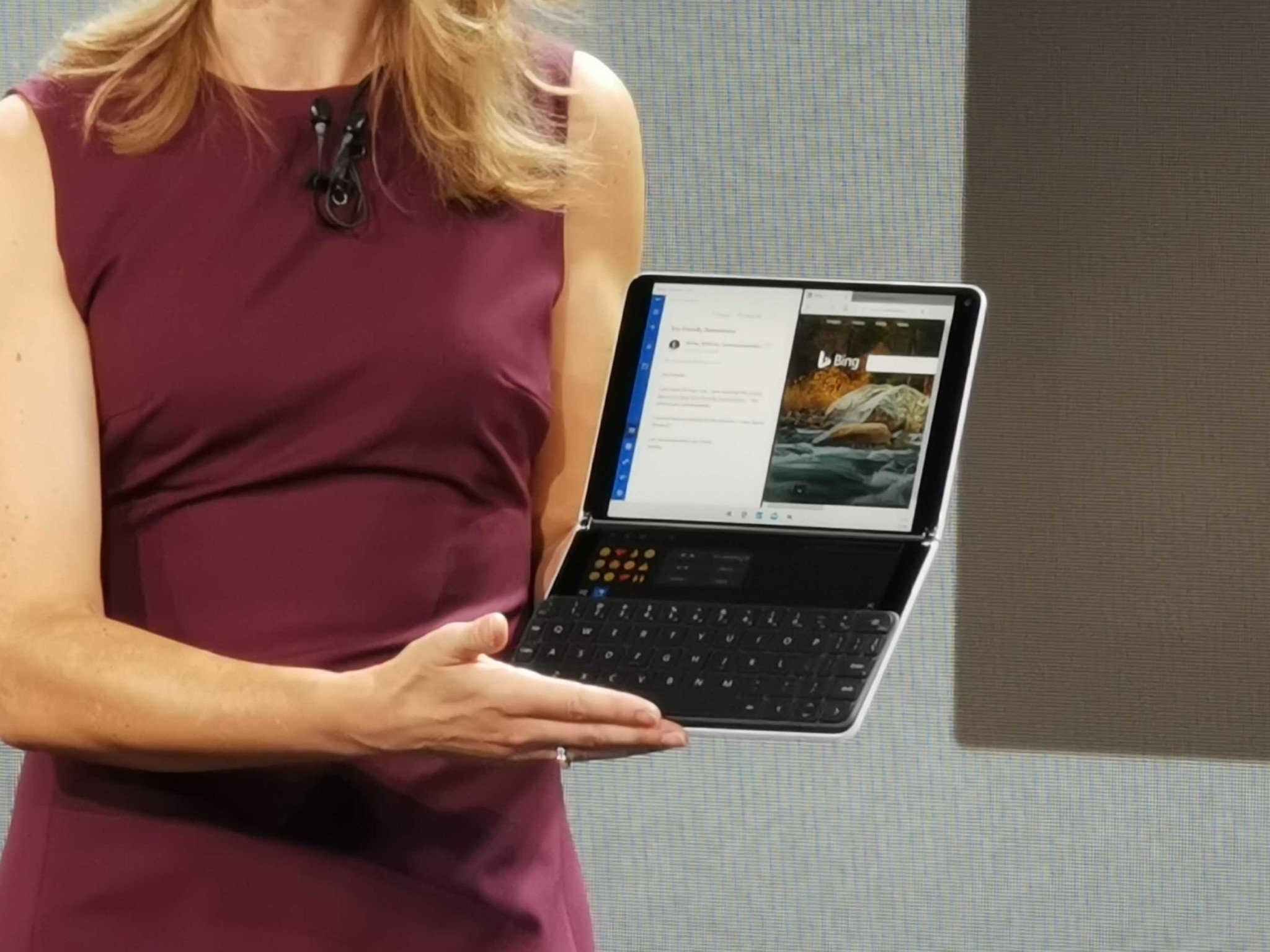 Source: Windows Central
Source: Windows Central

 Source: Windows Central
Source: Windows Central
This year is shaping up to be one of the biggest for Microsoft in terms of how much tech it’s readying for launch. Gamers have a new Xbox to look forward to at the end of the year, while Surface fans will see their dreams of a Surface phone realized with the Surface Duo. Then, of course, there’s Windows 10 X and dual-screen PCs in general, along with so much more.
One thing’s for sure: 2020 is going to be an expensive year for some of us. Here’s a look at all of the tech and software we’re looking forward to this year, and just why we’re excited about it.
Jez Corden, senior gaming editor

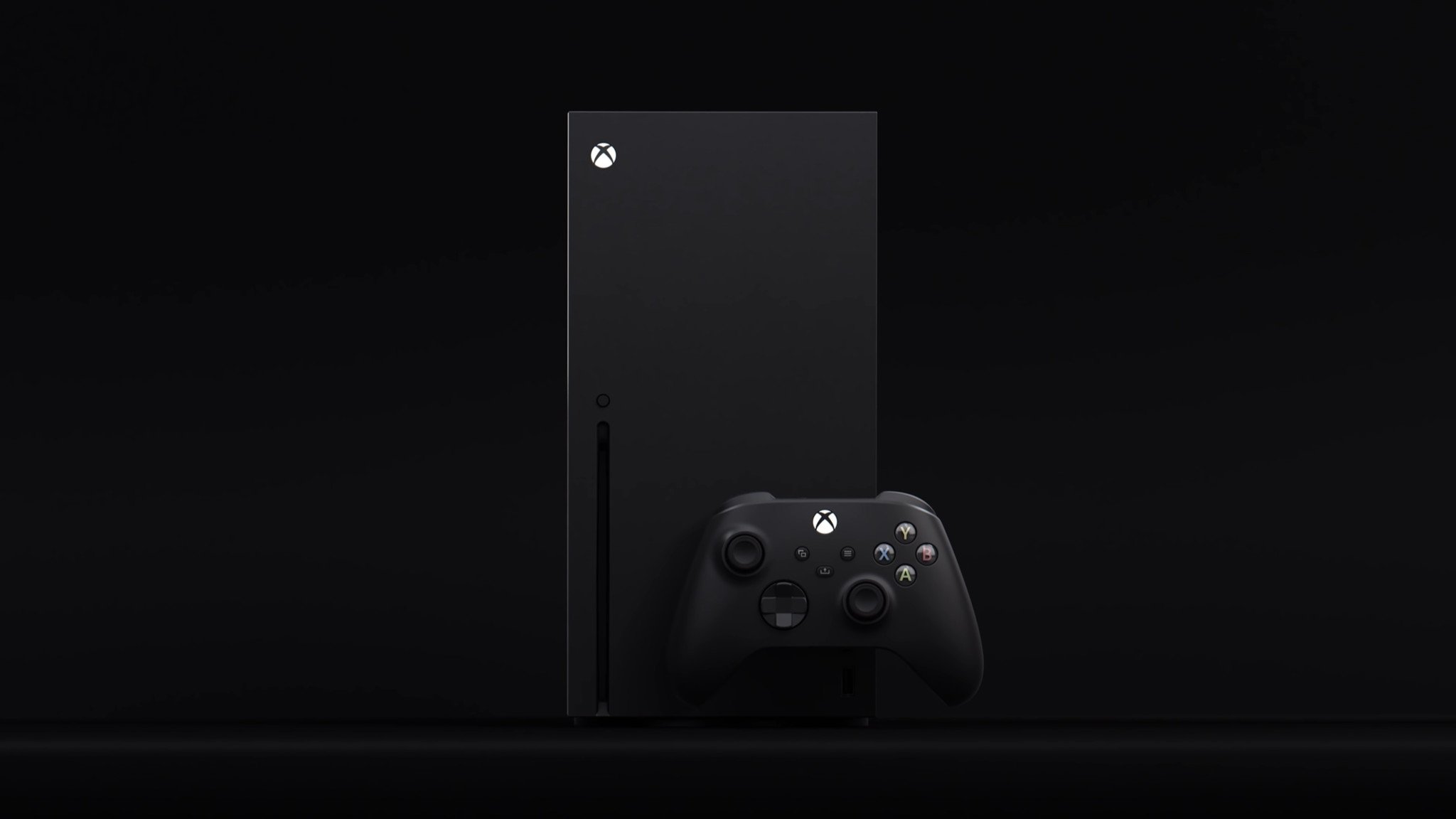 Source: Microsoft
Source: Microsoft
2020 is a huge year for Microsoft when it comes to general hardware. Like many others of us here at Windows Central, I’m overly excited for the Surface Duo, and the possibilities of a modern, streamlined Windows running on the Surface Neo. For me, though, the big one to watch is Microsoft’s Xbox Series X strategy.
We’ve heard that Microsoft will ship not one, but two consoles for its next-gen Xbox offering, with modern CPUs that drive ray traced lighting and reflections for more dynamic visuals. On top of that, the two-pronged approach has been viewed by some as a risky proposition, as Microsoft pits itself in direct opposition to Sony’s singular PlayStation 5 model. With digital lock-in making it less likely than ever for people to switch from their current preferred ecosystem, it remains to be seen whether features like Project XCloud, and Microsoft’s increased investment in first-party games can realistically make a dent in Sony’s console marketshare.
The Xbox Series X (and its possible Xbox Series S cousin) are only a part of Microsoft’s gaming aspirations for 2020 and beyond. As mentioned, the Project XCloud game streaming service will begin rolling to the masses in 2020, allowing users to turn their home console into a personal game streaming server. In our testing, we’ve found that console streaming works extremely well for turn-based games on a modest home network infrastructure, but it’s really XCloud itself that will prove itself more intriguing. Microsoft’s more Netflix-like XCloud service will stream games directly from their high-power data centers, which, so far, has proven itself to be viable for more demanding 3D games such as shooters, fighting games, and sports titles.
Microsoft is also working hard to court PC gamers with its high-value Xbox Game Pass for PC offering, although some of its other social tools, such as Xbox Clubs remain in limbo. It’s unclear whether Microsoft will continue to push its own Xbox-branded PC gaming ecosystem into the future, or simply double down on Steam, where Halo: Reach for PC has already seen massive success.
This generation will be the first that is fully representative of Phil Spencer’s vision for gaming at Microsoft. With Xbox Game Studios offering more exclusive titles than ever before, huge hardware commitments, and a bigger budget for practically everything gaming at Microsoft, it will be fun to see what Xbox can truly do when it stands on its own, unrestricted by the Windows division and Microsoft at large.
Daniel Rubino, executive editor

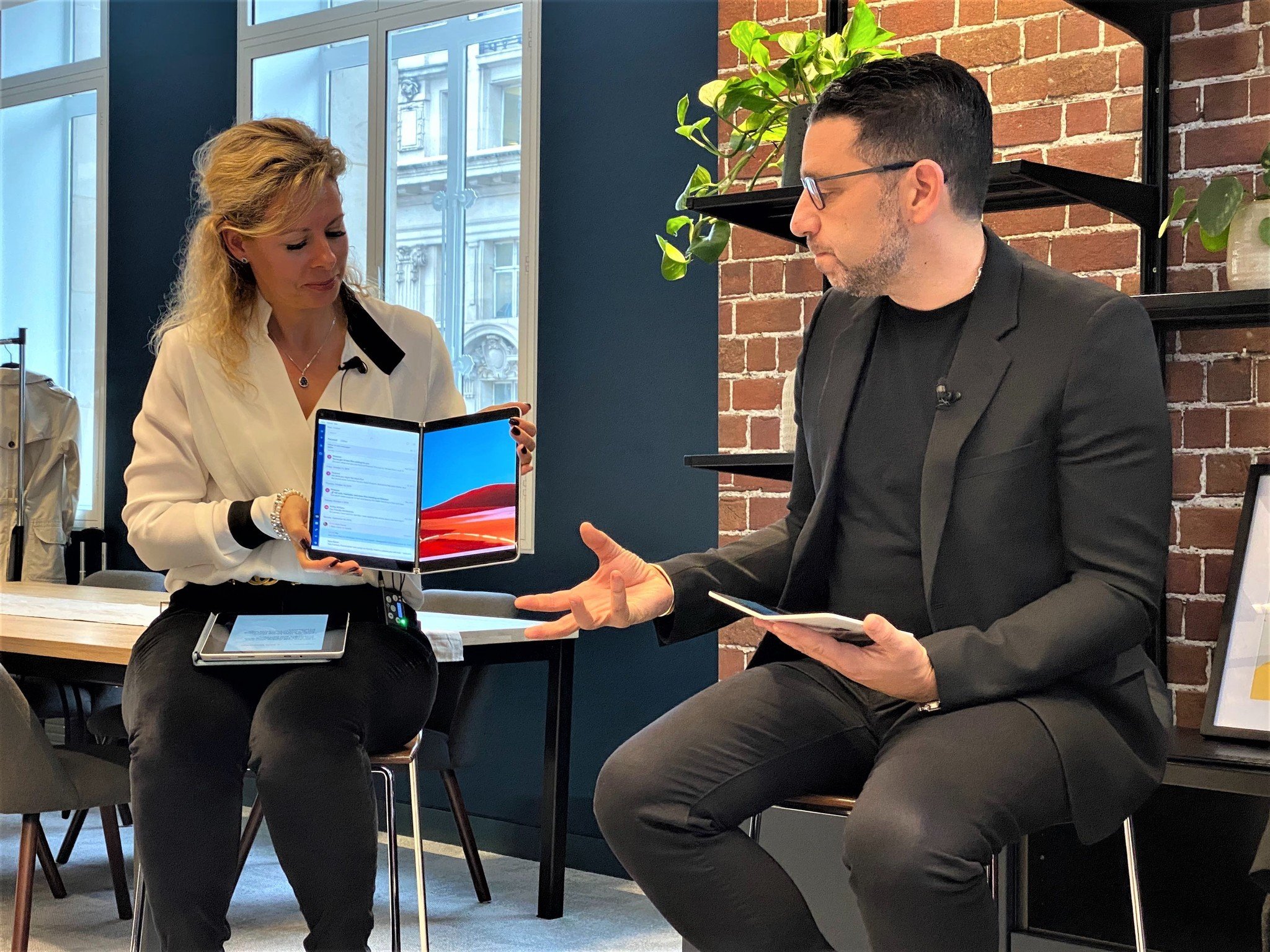 Source: Windows Central
Source: Windows Central
Two years ago, I wrote how Microsoft – and its OEM partners – were going to try to push the 2-in-1 category forward with dual-screen PCs. Many of the comments were dismissive and even doubtful, but it is evident that 2020 is the year of dual-screen and foldable-screen laptop PCs.
We know now that Lenovo has an X1 PC with a foldable display set for release sometime in 2020. Microsoft, too has its Surface Neo launching for next year’s holiday season. Microsoft even let it be known that ASUS, Dell, and HP all have contributions to this push for dual-screens. We also understand that these devices support magnetic physical keyboards to help with that whole typing problem.
So, will they a hit or a flop? At least Windows 10X will help with the new user experience, but like the original 2-in-1 category, it is likely to take a few generations before everyone figures it out. Either way, it’s officially happening. For those who yearned for Microsoft’s original 2009 Courier concept, it’s about to become a reality. And that’s super exciting.
Zac Bowden, senior editor

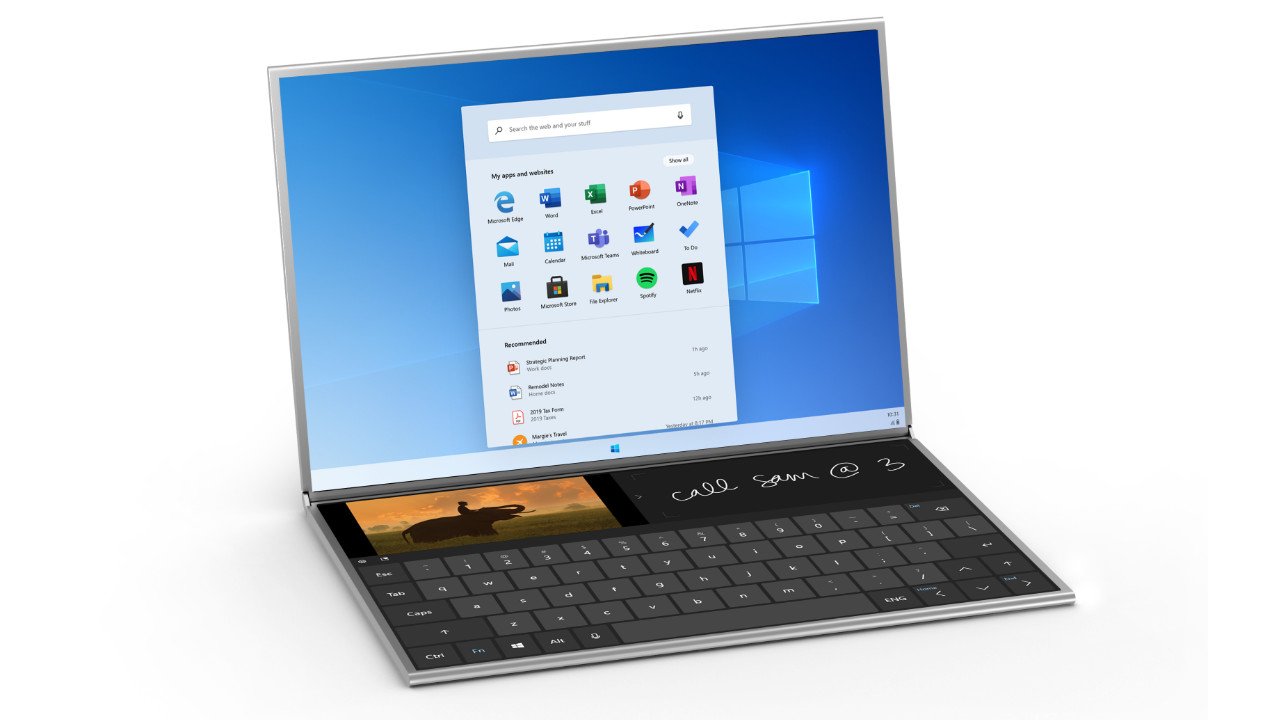 Source: Microsoft
Source: Microsoft
2020 is going to be a pretty big year for Windows, as Microsoft is expected to debut a new version of Windows 10 built from the ground up with a modern core, designed for modern devices such as foldable PCs. Known as Windows 10X, this new version of Windows 10 features a brand new user interface that’s quite the departure from the Windows we know today, along with new features and changes for a more modern experience.
Windows 10X will be the first consumer version of Windows to be based on Windows Core OS, a restructuring of Windows from the ground up that’s much more modern and lightweight, compared to the bloated, legacy version Windows we have today. Windows 10X is a modular OS, meaning many legacy features and components that most users don’t need today have been stripped out in favor of a far simpler user experience.
Even though many legacy components have been removed from Windows 10X, users will still be able to run legacy desktop applications thanks to emulation and sandboxing. Legacy desktop applications are sandboxed on Windows 10X, which means they run in a secure environment that can’t as easily affect the rest of the system. If you’re not running a Win32 program, legacy components are shut down and aren’t called upon until necessary, meaning improved system performance and battery life too.
Windows 10X will be launching first on foldable PCs at the end of 2020, but we understand that Windows 10X will be coming to more traditional form factors at some point in the future as well. Microsoft wants Windows 10X to be the new default version of Windows for most people. Similar to how Apple treats iPadOS and macOS: iPadOS is for most people, macOS is for power users. Windows 10X is the OS that Microsoft wants most people to use, with existing Windows 10 becoming the option for power users and enterprises who need legacy features and support.
Dan Thorp-Lancaster, news editor

 Source: Daniel Rubino/Windows Central
Source: Daniel Rubino/Windows Central
Something I’m pretty excited to get my hands on in 2020 is Microsoft’s Surface Earbuds. It may not be as exciting as a new OS, foldable PCs, or a new console for most, but the accessory was one of my favorite takeaways from Microsoft’s October 2019 Surface event. That’s why I was pretty bummed out when Microsoft ultimately delayed them to Spring 2020.
I was waiting to see if Microsoft would jump into the premium wireless earbud space before buying any for myself, so I’ll be happy to at least test a pair whenever they end up launching. I’ll admit I’m still coming around to the design, which features a rather large touch area on each bud, but the promise of excellent audio quality, a comfortable fit, and some interesting Office and translation integrations is tempting.
That’s not to say I’m handing my money over just yet. Apple’s AirPods Pro and Google’s Pixel Buds 2 are mighty interesting as well. Then there’s the raft of much cheaper earbud options out there that could fit the bill. Still, I’m stoked to go hands-on with a pair once they’re available.
Though, if Microsoft ever manages to launch the fabled black Surface Headphones, I might be swayed that direction as well.
Sean Endicott, news writer

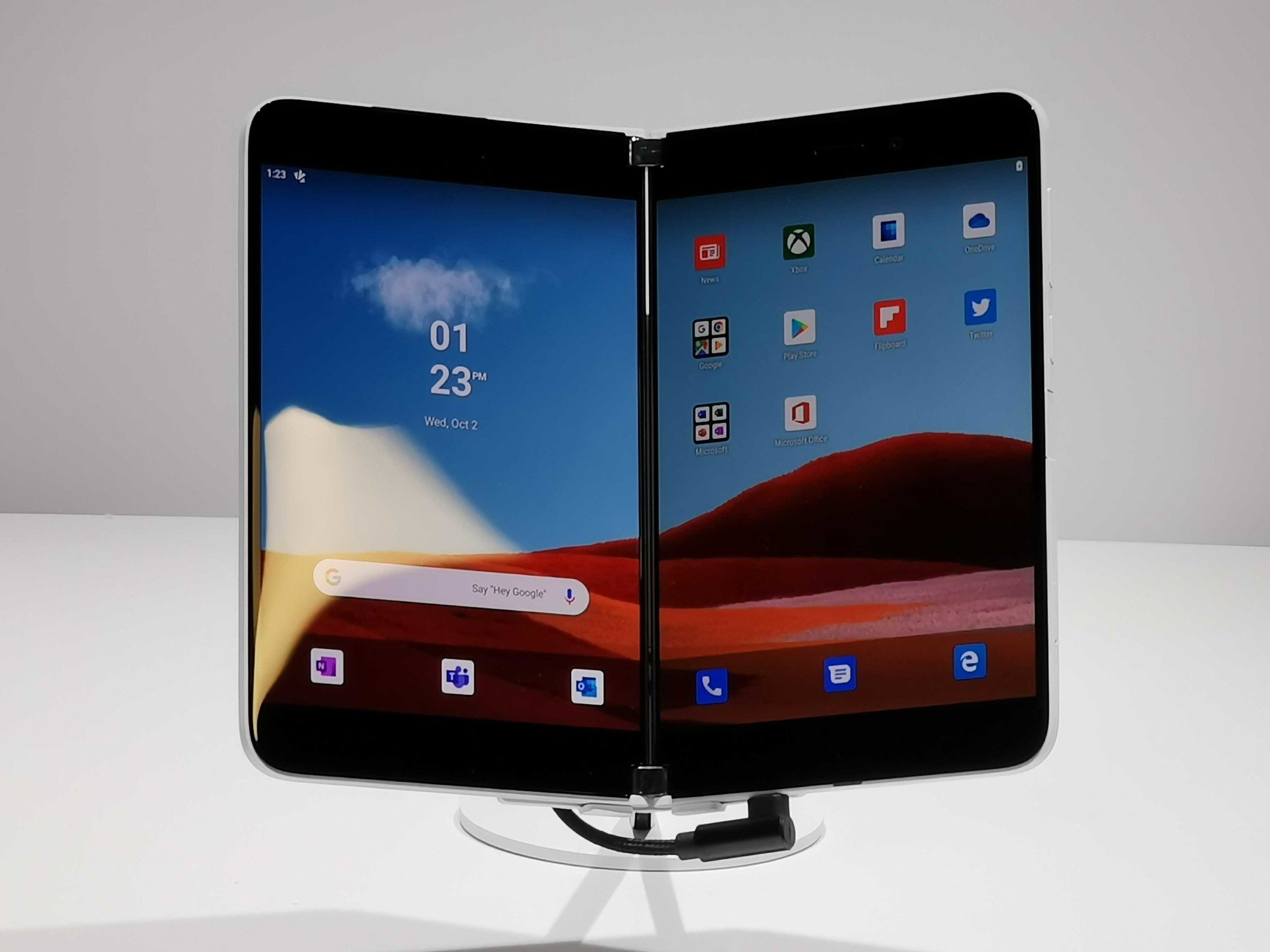 Source: Windows Central
Source: Windows Central
2019 was arguably Microsoft’s biggest year ever on Android, and it sets up for an even bigger 2020. Microsoft continues to expand its library of apps and services on Android, with several apps reaching one billion installs in 2019. In 2020, we’ll see the rollout and next steps for xCloud, Your Phone, and the Office suite. Microsoft is unifying the look of apps across platforms, bringing dark mode to more apps, and delivering a growing number of services to mobile users.
It feels like years of Microsoft shifting its mobile strategy is coming together in 2020.
On top of all of the apps and services that Microsoft builds for Android, it is also entering the hardware space with the Surface Duo. While this dual-screen phone won’t be a direct competitor to the likes of OnePlus and Samsung, it will give us a glimpse into Microsoft’s vision for Android.
I’m curious to see what and Android phone from Microsoft looks like. What will its launcher look like? Will it have an upgraded version of Next Lockscreen? Will Microsoft add any features to stock Android? These are just a few questions we’ll have answered in 2020. Samsung already integrates Your Phone directly into the Note10. I’m anxious to see what Microsoft will do when it has deep access to the software and hardware of an Android device.
What’s the tech you’re most looking forward to checking out this year? Do you agree with our picks, or is there something else that’s caught your eye? Let us know in the comments.
We may earn a commission for purchases using our links. Learn more.

Although no one likes a know-it-all, they dominate the Internet.
The Internet began as a vast repository of information. It quickly became a breeding ground for self-proclaimed experts seeking what most people desire: recognition and money.
Today, anyone with an Internet connection and some typing skills can position themselves, regardless of their education or experience, as a subject matter expert (SME). From relationship advice, career coaching, and health and nutrition tips to citizen journalists practicing pseudo-journalism, the Internet is awash with individuals—Internet talking heads—sharing their “insights,” which are, in large part, essentially educated guesses without the education or experience.
The Internet has become a 24/7/365 sitcom where armchair experts think they’re the star.
Not long ago, years, sometimes decades, of dedicated work and acquiring education in one’s field was once required to be recognized as an expert. The knowledge and opinions of doctors, scientists, historians, et al. were respected due to their education and experience. Today, a social media account and a knack for hyperbole are all it takes to present oneself as an “expert” to achieve Internet fame that can be monetized.
On the Internet, nearly every piece of content is self-serving in some way.
The line between actual expertise and self-professed knowledge has become blurry as an out-of-focus selfie. Inadvertently, social media platforms have created an informal degree program where likes and shares are equivalent to degrees. After reading selective articles, they’ve found via and watching some TikTok videos, a person can post a video claiming they’re an herbal medicine expert. Their new “knowledge,” which their followers will absorb, claims that Panda dung tea—one of the most expensive teas in the world and isn’t what its name implies—cures everything from hypertension to existential crisis. Meanwhile, registered dietitians are shaking their heads, wondering how to compete against all the misinformation their clients are exposed to.
More disturbing are individuals obsessed with evangelizing their beliefs or conspiracy theories. These people write in-depth blog posts, such as Elvis Is Alive and the Moon Landings Were Staged, with links to obscure YouTube videos, websites, social media accounts, and blogs. Regardless of your beliefs, someone or a group on the Internet shares them, thus confirming your beliefs.
Misinformation is the Internet’s currency used to get likes, shares, and engagement; thus, it often spreads like a cosmic joke. Consider the prevalence of clickbait headlines:
Titles that make outrageous claims are how the content creator gets reads and views, which generates revenue via affiliate marketing, product placement, and pay-per-click (PPC) ads. Clickbait headlines are how you end up watching a TikTok video by a purported nutrition expert adamantly asserting you can lose belly fat while you sleep by drinking, for 14 consecutive days, a concoction of raw eggs, cinnamon, and apple cider vinegar 15 minutes before going to bed.
Our constant search for answers that’ll explain our convoluted world and our desire for shortcuts to success is how Internet talking heads achieve influencer status. Because we tend to seek low-hanging fruits, we listen to those with little experience or knowledge of the topics they discuss yet are astute enough to know what most people want to hear.
There’s a trend, more disturbing than spreading misinformation, that needs to be called out: individuals who’ve never achieved significant wealth or traded stocks giving how-to-make-easy-money advice, the appeal of which is undeniable. Several people I know have lost substantial money by following the “advice” of Internet talking heads.
Anyone on social media claiming to have a foolproof money-making strategy is lying. They wouldn’t be peddling their money-making strategy if they could make easy money.
Successful people tend to be secretive.
Social media companies design their respective algorithms to serve their advertisers—their source of revenue—interest; hence, content from Internet talking heads appears most prominent in your feeds. When a video of a self-professed expert goes viral, likely because it pressed an emotional button, the more people see it, the more engagement it receives, such as likes, shares and comments, creating a cycle akin to a tornado.
Imagine scrolling through your TikTok feed and stumbling upon a “scientist” who claims they can predict the weather using only aluminum foil, copper wire, sea salt and baking soda. You chuckle, but you notice his video got over 7,000 likes, has been shared over 600 times and received over 400 comments. You think to yourself, “Maybe this guy is onto something.” What started as a quest to achieve Internet fame evolved into an Internet-wide belief that weather forecasting can be as easy as DIY crafts.
Since anyone can call themselves “an expert,” you must cultivate critical thinking skills to distinguish genuine expertise from self-professed experts’ self-promoting nonsense. While the absurdity of the Internet can be entertaining, misinformation has serious consequences. The next time you read a headline that sounds too good to be true, it’s probably an Internet talking head making an educated guess; without the education seeking Internet fame, they can monetize.
______________________________________________________________
Nick Kossovan, a self-described connoisseur of human psychology, writes about what’s
on his mind from Toronto. You can follow Nick on Twitter and Instagram @NKossovan.

TORONTO – A new survey says a majority of software engineers and developers feel tight project deadlines can put safety at risk.
Seventy-five per cent of the 1,000 global workers who responded to the survey released Tuesday say pressure to deliver projects on time and on budget could be compromising critical aspects like safety.
The concern is even higher among engineers and developers in North America, with 77 per cent of those surveyed on the continent reporting the urgency of projects could be straining safety.
The study was conducted between July and September by research agency Coleman Parkes and commissioned by BlackBerry Ltd.’s QNX division, which builds connected-car technology.
The results reflect a timeless tug of war engineers and developers grapple with as they balance the need to meet project deadlines with regulations and safety checks that can slow down the process.
Finding that balance is an issue that developers of even the simplest appliances face because of advancements in technology, said John Wall, a senior vice-president at BlackBerry and head of QNX.
“The software is getting more complicated and there is more software whether it’s in a vehicle, robotics, a toaster, you name it… so being able to patch vulnerabilities, to prevent bad actors from doing malicious acts is becoming more and more important,” he said.
The medical, industrial and automotive industries have standardized safety measures and anything they produce undergoes rigorous testing, but that work doesn’t happen overnight. It has to be carried out from the start and then at every step of the development process.
“What makes safety and security difficult is it’s an ongoing thing,” Wall said. “It’s not something where you’ve done it, and you are finished.”
The Waterloo, Ont.-based business found 90 per cent of its survey respondents reported that organizations are prioritizing safety.
However, when asked about why safety may not be a priority for their organization, 46 per cent of those surveyed answered cost pressures and 35 per cent said a lack of resources.
That doesn’t surprise Wall. Delays have become rampant in the development of tech, and in some cases, stand to push back the launch of vehicle lines by two years, he said.
“We have to make sure that people don’t compromise on safety and security to be able to get products out quicker,” he said.
“What we don’t want to see is people cutting corners and creating unsafe situations.”
The survey also took a peek at security breaches, which have hit major companies like London Drugs, Indigo Books & Music, Giant Tiger and Ticketmaster in recent years.
About 40 per cent of the survey’s respondents said they have encountered a security breach in their employer’s operating system. Those breaches resulted in major impacts for 27 per cent of respondents, moderate impacts for 42 per cent and minor impacts for 27 per cent.
“There are vulnerabilities all the time and this is what makes the job very difficult because when you ship the software, presumably the software has no security vulnerabilities, but things get discovered after the fact,” Wall said.
Security issues, he added, have really come to the forefront of the problems developers face, so “really without security, you have no safety.”
This report by The Canadian Press was first published Oct. 8, 2024.
Companies in this story: (TSX:BB)
The Canadian Press. All rights reserved.
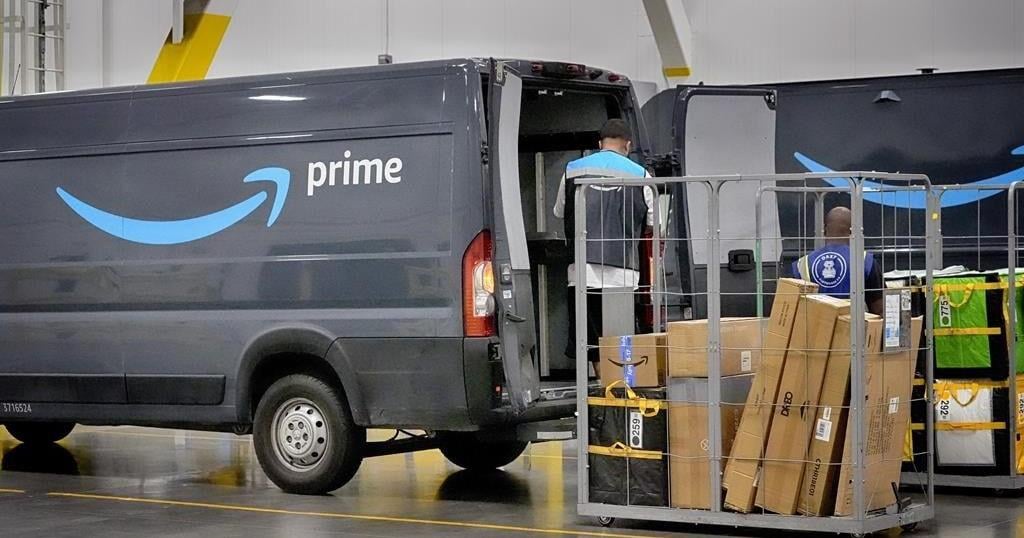
As online shoppers hunt for bargains offered by Amazon during its annual fall sale this week, cybersecurity researchers are warning Canadians to beware of an influx of scammers posing as the tech giant.
In the 30 days leading up to Amazon’s Prime Big Deal Days, taking place Tuesday and Wednesday, there were more than 1,000 newly registered Amazon-related web domains, according to Check Point Software Technologies, a company that offers cybersecurity solutions.
The company said it deemed 88 per cent of those domains malicious or suspicious, suggesting they could have been set up by scammers to prey on vulnerable consumers. One in every 54 newly created Amazon-related domain included the phrase “Amazon Prime.”
“They’re almost indiscernible from the real Amazon domain,” said Robert Falzon, head of engineering at Check Point in Canada.
“With all these domains registered that look so similar, it’s tricking a lot of people. And that’s the whole intent here.”
Falzon said Check Point Research sees an uptick in attempted scams around big online shopping days throughout the year, including Prime Days.
Scams often come in the form of phishing emails, which are deceptive messages that appear to be from a reputable source in attempt to steal sensitive information.
In this case, he said scammers posing as Amazon commonly offer “outrageous” deals that appear to be associated with Prime Days, in order to trick recipients into clicking on a malicious link.
The cybersecurity firm said it has identified and blocked 100 unique Amazon Prime-themed scam emails targeting organizations and consumers over the past two weeks.
Scammers also target Prime members with unsolicited calls, claiming urgent account issues and requesting payment information.
“It’s like Christmas for them,” said Falzon.
“People expect there to be significant savings on Prime Day, so they’re not shocked that they see something of significant value. Usually, the old adage applies: If it seems too good to be true, it probably is.”
Amazon’s website lists a number of red flags that it recommends customers watch for to identify a potential impersonation scam.
Those include false urgency, requests for personal information, or indications that the sender prefers to complete the purchase outside of the Amazon website or mobile app.
Scammers may also request that customers exclusively pay with gift cards, a claim code or PIN. Any notifications about an order or delivery for an unexpected item should also raise alarm bells, the company says.
“During busy shopping moments, we tend to see a rise in impersonation scams reported by customers,” said Amazon spokeswoman Octavia Roufogalis in a statement.
“We will continue to invest in protecting consumers and educating the public on scam avoidance. We encourage consumers to report suspected scams to us so that we can protect their accounts and refer bad actors to law enforcement to help keep consumers safe.”
Falzon added that these scams are more successful than people might think.
As of June 30, the Canadian Anti-Fraud Centre said there had been $284 million lost to fraud so far this year, affecting 15,941 victims.
But Falzon said many incidents go unreported, as some Canadians who are targeted do not know how or where to flag a scam, or may choose not to out of embarrassment.
Check Point recommends Amazon customers take precautions while shopping on Prime Days, including by checking URLs carefully, creating strong passwords on their accounts, and avoiding personal information being shared such as their birthday or social security number.
The cybersecurity company said consumers should also look for “https” at the beginning of a website URL, which indicates a secure connection, and use credit cards rather than debit cards for online shopping, which offer better protection and less liability if stolen.
This report by The Canadian Press was first published Oct. 8, 2024.


Freeland says she is ‘absolutely confident’ Liberal MPs still support Trudeau |


The NDP, B.C. Conservative leaders vie for votes ahead of Saturday’s election


Tobacco victims hail ‘historic’ $32.5-billion deal |


‘Hateful and mean’: LGBTQ+ advocates slam Sask. Party’s proposed change room policy


Where will B.C.’s election be won or lost? Here are five bellwether ridings to watch


Fearing demolition, Montreal skateboarders rally to protect DIY skatepark from city


B.C. voters face a once-unthinkable election choice, after stunning rise of Rustad


Voters head to the polls today in Halifax and other Nova Scotia municipalities